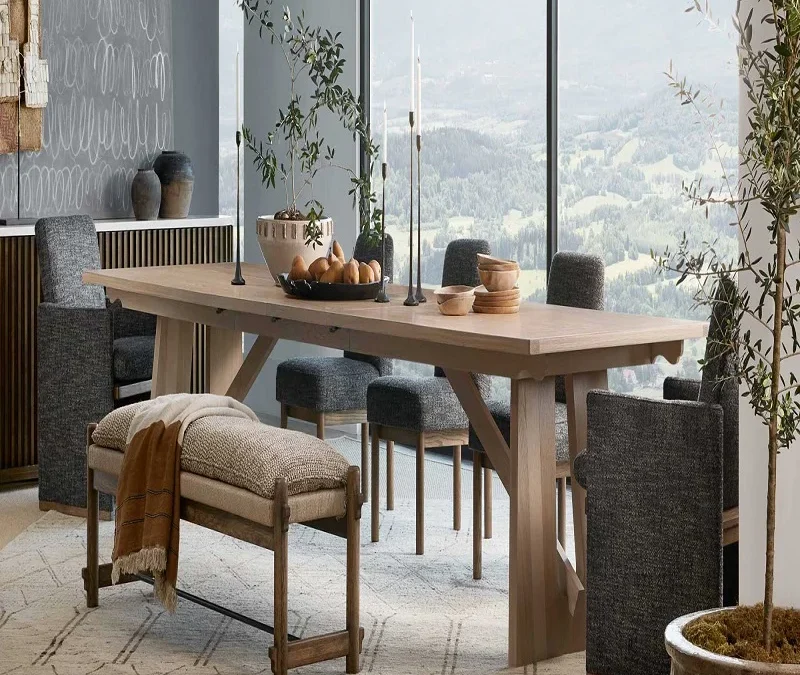Dubai is a city known for its luxury, innovation, and fast-paced development. But amidst the glittering skyscrapers and opulent interiors, a quiet revolution is taking shape—one that’s grounded in sustainability and mindful living. Eco-friendly Carpentry Dubai is no longer a niche concept in Dubai’s residential design. Instead, it’s fast becoming a popular choice among homeowners who value quality, longevity, and environmental responsibility.
In this blog, we explore how sustainable woodwork is reshaping carpentry in Dubai homes, the materials and practices behind it, and why this trend is here to stay.
Why Sustainable Carpentry Matters in Dubai
The UAE has committed to several environmental initiatives, such as the UAE Net Zero 2050 strategy. With increasing awareness of climate change and waste reduction, Dubai residents are seeking ways to contribute, starting right at home. Sustainable carpentry is a direct and impactful choice for eco-conscious consumers.
Traditional carpentry often relies on hardwoods that are not responsibly sourced, uses toxic adhesives or finishes, and contributes to excess landfill waste. By contrast, eco-friendly carpentry emphasizes:
- Sustainably sourced or reclaimed wood
- Low-VOC (Volatile Organic Compounds) finishes
- Durable construction that reduces the need for frequent replacement
It’s not just a green trend—it’s a smarter, long-term investment in quality and design.
Popular Sustainable Wood Choices in Dubai
Not all wood is created equal. In sustainable carpentry, the source and lifecycle of the wood are key considerations. Some of the most popular eco-friendly options used by Dubai carpenters include:
Reclaimed Wood
Sourced from old buildings, boats, or furniture, reclaimed wood offers a rustic charm while reducing the demand for new timber. It’s strong, seasoned, and adds a story to your home.
Bamboo
Technically a grass, bamboo grows incredibly fast and requires less water than traditional wood. It’s highly durable and perfect for flooring, cabinetry, and decorative wall panels.
FSC-Certified Timber
The Forest Stewardship Council (FSC) certifies wood products that come from responsibly managed forests. Look for the FSC logo when sourcing materials for your next carpentry project.
Engineered Wood Products
Options like plywood or MDF made from recycled wood fibers are more sustainable than harvesting virgin wood. When combined with non-toxic adhesives, they provide an eco-friendly base for built-ins and custom furniture.
Eco-Friendly Finishes and Adhesives
It’s not just the wood that matters—the finishes, stains, and glues used can have a significant impact on indoor air quality. Many conventional products emit VOCs, which are harmful to both health and the environment.
Eco-conscious carpenters in Dubai now opt for:
- Water-based polyurethane finishes
- Natural oil and wax finishes
- Low-VOC or VOC-free adhesives and sealants
These alternatives ensure that your home remains a safe and healthy space for your family without compromising on aesthetics.
Custom Carpentry for Sustainable Living
Eco-friendly carpentry isn’t limited to the materials—it extends to the design itself. In Dubai, bespoke woodwork allows for multifunctional and space-saving designs that reduce waste and maximize efficiency.
Here are a few practical applications:
- Built-in wardrobes that eliminate the need for multiple pieces of furniture
- Modular kitchen cabinets made from FSC-certified plywood
- Convertible furniture like fold-out desks or beds, ideal for compact apartments
- Smart storage solutions under stairs, beds, or in nooks, minimizing material use while maximizing functionality
By choosing tailored solutions, homeowners reduce their dependency on mass-produced furniture that often ends up in landfills within a few years.
Local Carpenters Leading the Way
Dubai’s carpentry scene is evolving fast, with several local workshops now offering sustainable options. These businesses not only use eco-friendly materials but also minimize waste in their processes by reusing offcuts and recycling sawdust.
Many carpenters also collaborate with interior designers and architects to ensure the final product meets both aesthetic and environmental standards. Some are even integrating digital fabrication techniques (like CNC cutting) to reduce material waste and increase precision.
Choosing a local, eco-conscious carpenter not only supports small business but also reduces the carbon footprint associated with importing furniture.
What to Ask Before Hiring a Carpenter
If you’re considering an eco-friendly upgrade to your home, here are a few questions to ask:
- Do you offer FSC-certified or reclaimed wood options?
- What kind of finishes and adhesives do you use?
- How do you manage material waste?
- Can the furniture be disassembled or recycled at the end of its life?
- Are you open to sourcing custom sustainable materials?
These questions will help you gauge the carpenter’s commitment to sustainability and ensure your project aligns with your values.
The Future of Green Design in Dubai
As Dubai continues to position itself as a global leader in sustainable development, the demand for eco-conscious home solutions will only grow. Sustainable carpentry is a key piece of that puzzle—offering both environmental benefits and beautifully crafted interiors.
Whether you’re renovating Furniture Dubai a villa in Jumeirah or furnishing an apartment in Downtown Dubai, choosing eco-friendly carpentry is more than a design decision—it’s a step toward a greener future.

